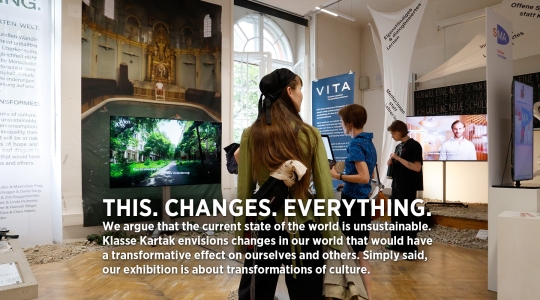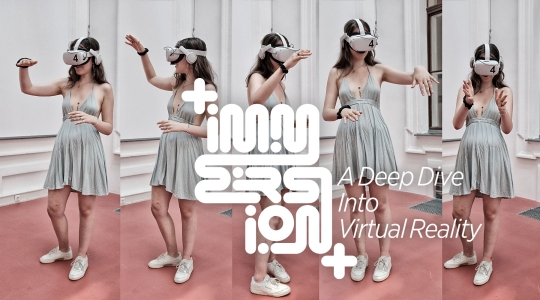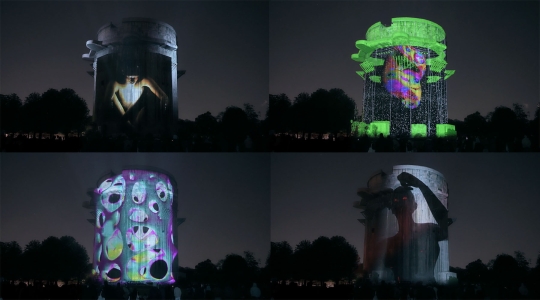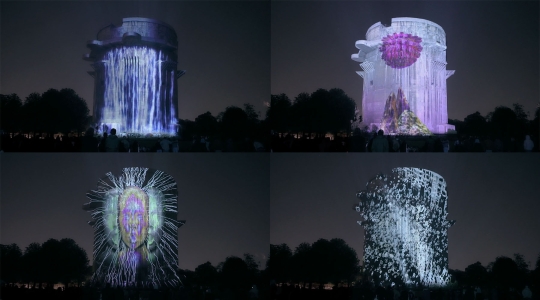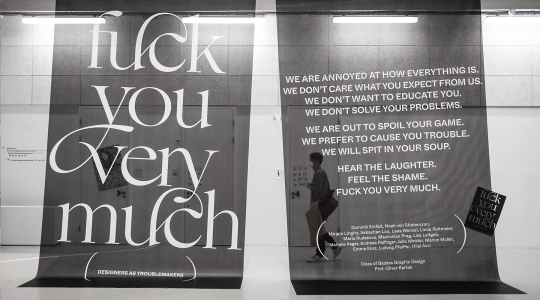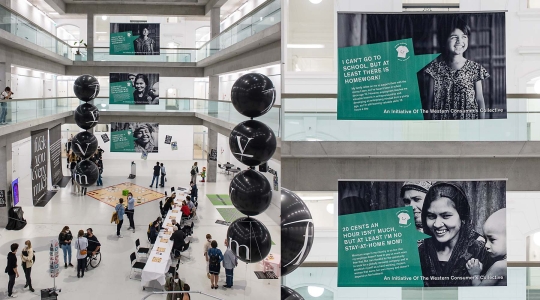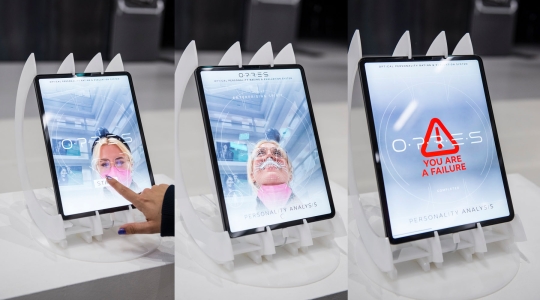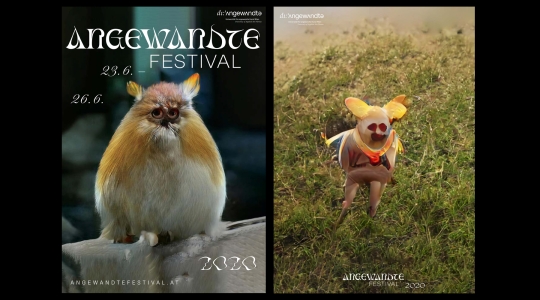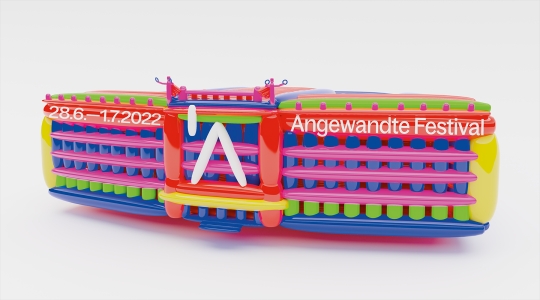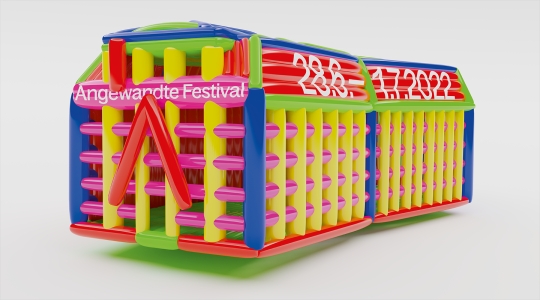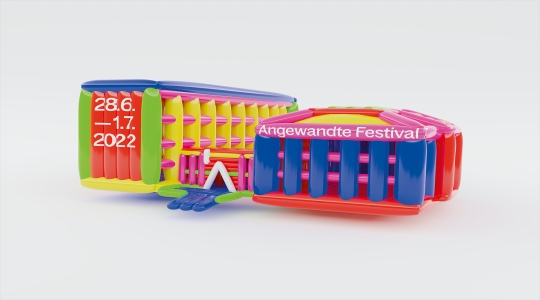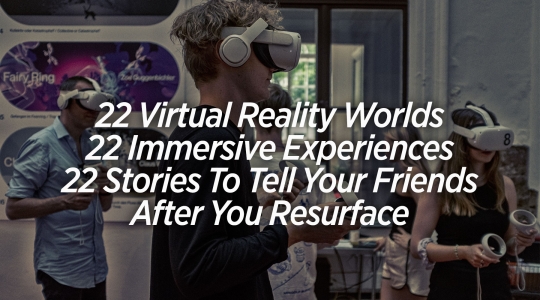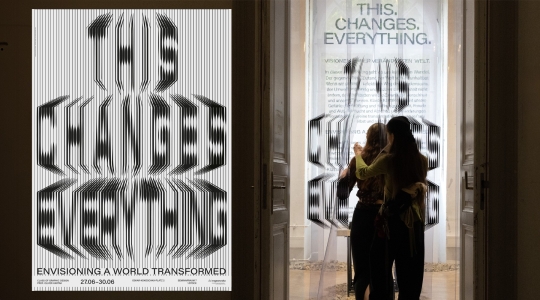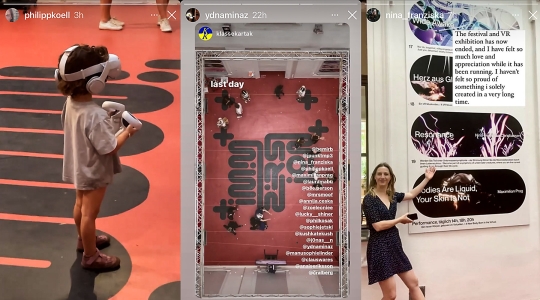We see design as a personal approach to life. We designers have
a curious mind and a strong awareness of the challenges of the world we live in. We are convinced that design is a force for
good. We are optimistic that we can bring about positive change through our design thinking and practice.
Together
we work on the topics and forms of expression of the present and the future. In doing so, we clearly position ourselves in
the areas of digital media, interactive media, Extended Reality, AI-generated media and multimedia. We understand design as
an inter- and transdisciplinary field and strive to expand the scope of visual communication.
In
the Central Artistic Subject (ZkF), students from all years work together, either team-oriented or in individual processes.
In weekly meetings, all students are intensively supervised and supported in their work. We offer an eclectic mix of applied
and free projects that allow students to practise the use-oriented problem-solving approaches of design as well as to develop
authorship in personally chosen topics.
On the one hand, we place great emphasis on applied
design areas such as branding, corporate design, digital design, exhibition design and narrative media design. Designers should
be able to offer people meaningful and comprehensible solutions to problems.
On the other
hand, we devote ourselves to speculative design and design fiction in annual exhibition themes. The practice of speculative
design differs from market-oriented design practice: it is not about offering concrete, directly realisable solutions.
Speculative
design creates imaginary future scenarios and utopian or dystopian products that can be aesthetically pleasing, provocative
and humorous. The basis of this design practice is the observation and investigation of current technological, social, economic,
ecological, political or cultural realities. The speculation about their tendencies as well as the diverse design implementation
of these anticipated lines of development of the present should make their potentials visible and discussable. In our exhibitions
inside and outside the university, designers become questioners who give the public a different view of the present and future
challenges.
In our degree programme, the playful and exploratory element in the design process
is a driving force. In addition to the three major specialisation modules Typography, Human Computer Interaction and Storytelling,
the curriculum includes a variety of courses in theory and methodology, technical basics and artistic practice. The university's
workshops support students in the implementation of projects.
Cooperations with other departments
at the university enable inter- and transdisciplinary work. Workshops and lectures by national and international guests from
various disciplines enrich the range of studies in terms of craftsmanship, design and intellect. Our study trips enable intercultural
learning.
Research projects and commissioned work train students in professional dealings
with public and private institutions. Regular lectures by graduates of the department complement the preparation for professional
life after graduation.




